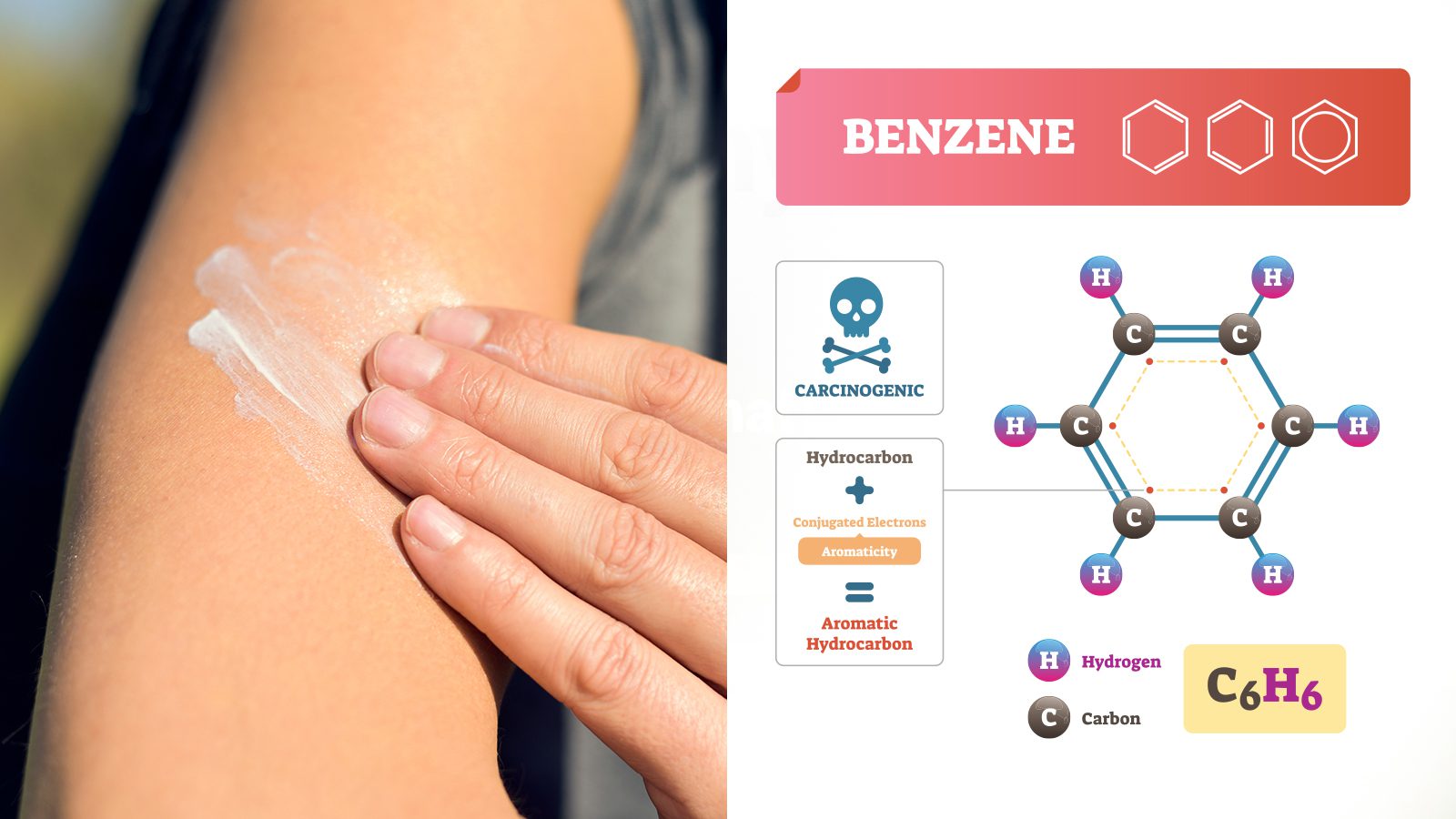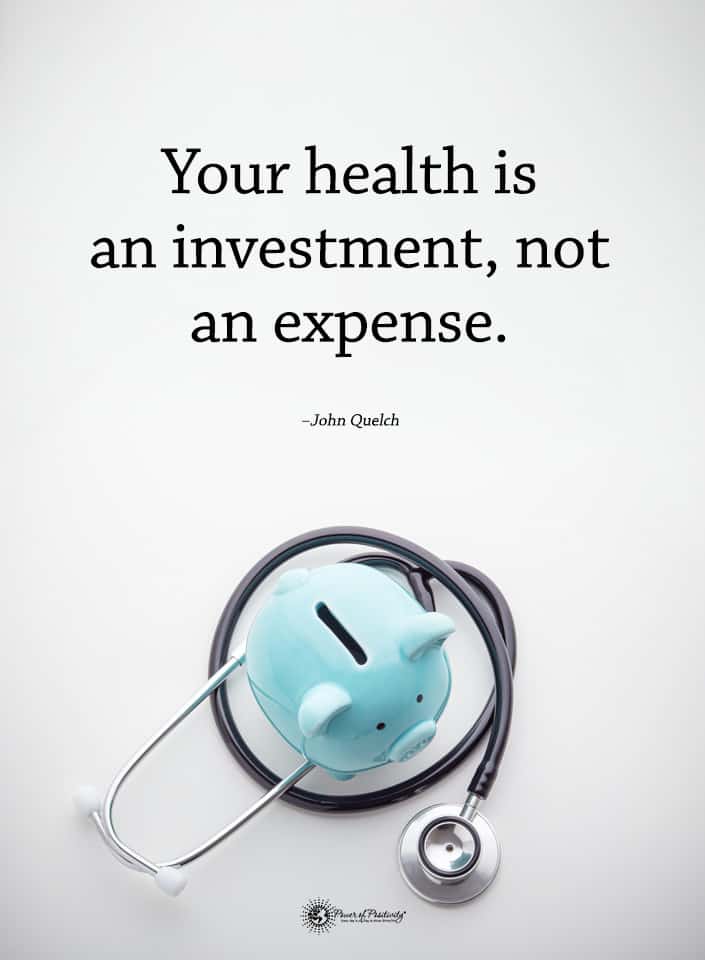Recently, an independent testing lab detected the known carcinogen benzene in 78 different sunscreens. The lab contacted the FDA after making the discovery, urging them to ban the products.
The lab, Valisure, inspects medicines and healthcare products to ensure they meet quality standards. When the company tested almost 300 sunscreen products, they found benzene in 27% of them. Even more troubling, 14 of the products (5%) had benzene levels three times higher than the recommended two parts per million(ppm). The FDA recommends this limit for benzene in medicines that require the ingredient.
“Benzene is one of the most studied and concerning human carcinogens known to science. Its association with forming blood cancers in humans has been shown in numerous studies at trace levels of parts per million and below. The presence of this known human carcinogen in products widely recommended for the prevention of skin cancer and that are regularly used by adults and children is very troubling,” David Light, founder and CEO of Valisure, said in a statement from the company.
Where does benzene come from?
Benzene, a colorless, pale yellow liquid, forms from both natural processes and human activities. Natural sources of benzene include volcanoes and forest fires. Manufacturing activities that produce benzene include burning fossil fuels and driving cars, as it is released in vehicle emissions. Also, it’s used in the manufacturing process for certain plastics, rubbers, dyes, detergents, drugs, and pesticides, according to the CDC.
Dangers of benzene to humans
Long-term exposure to abnormally high benzene levels can cause cancer, such as blood cancers like leukemia. Most exposure to benzene happens in the workplace. However, state and federal regulations have improved working conditions over the years.
The U.S. Occupational Safety & Health Administration (OSHA) limits workplace exposure to benzene in the air. It cannot exceed one ppm during an average workday or five ppm over any 15 minutes.
In addition, the Environmental Protection Agency (EPA) limits benzene in drinking water to 0.005 ppm, or five parts per billion (ppb). They’ve also set this limit for bottled water.
Furthermore, the FDA recommends drug manufacturers not use benzene unless necessary. Particular circumstances include if they cannot avoid using the chemical and if the drug has significant medical value. In these instances, the FDA says benzene levels shouldn’t exceed two ppm.
One of these exceptions occurred at the beginning of the COVID-19 pandemic. When there was a hand sanitizer shortage, the FDA temporarily allowed hand sanitizers to contain up to 2 ppm of benzene. However, in March 2021, Valisure discovered benzene levels above this amount in almost 24 hand sanitizers. One of these products sold by one company got recalled later on.
Valisure found dangerous levels of benzene in sunscreens as well.
Due to their latest findings, Valisure wrote a petition asking the FDA to recall the 78 sunscreens. They’ve also urged the agency to conduct its investigation into the sunscreen companies. You can find the complete list of the sunscreen products with unsafe benzene levels in the petition. Most of the 14 sunscreen products with benzene levels higher than two ppm were sprays. However, some lotions and sunburn-relief gels contained the carcinogen as well.
Even though the FDA recommends benzene not be used in drug manufacturing, it doesn’t set limits for sunscreen. The two ppm limit only applies to the “special circumstances” discussed above. The agency does regulate sunscreen as an over-the-counter drug, however.
Because of their new findings, Valisure urges the FDA to set benzene levels for sunscreen and other drug products. Furthermore, they’ve called on them to set an exposure limit for benzene in a single day.
Since Valisure didn’t find benzene in most sunscreens tested, the company says it isn’t necessary. Therefore, no benzene should be allowed in sunscreen.
“There is not a safe level of benzene that can exist in sunscreen products,” stated Dr. Christopher Bunick, MD, Ph.D., Associate Professor of Dermatology at Yale University, in the statement from Valisure. “Even benzene at 0.1 ppm in a sunscreen could expose people to excessively high nanogram amounts of benzene.”
According to Live Science, the FDA is currently reviewing the petition. The agency says it’s taking the safety concerns with the sunscreens seriously. While they evaluate the petition, they will ensure U.S. consumers still have access to safe sunscreens.
Should you still use sunscreen?
Even though certain sunscreens have high levels of benzene, it doesn’t mean people shouldn’t use sunscreen at all.
“Many sunscreen products tested by Valisure did not have benzene contamination, and those products are presumably safe and should continue to be used, along with appropriate hats and sun-protective clothing, to mitigate skin cancer risk,” Bunick said.
Using a safe sunscreen can help prevent skin cancer, the most common external form of cancer worldwide. 1 in 5 Americans will develop skin cancer by age 70, according to The Skin Cancer Foundation. To protect the skin while in the sun, make sure to reapply sunscreen at least every two hours. Experts recommend using a sunscreen with a minimum of 30 SPF, which blocks 97% of the sun’s UVB rays.
Talk to your doctor about your skin cancer risks and decide whether you should apply it daily.
Other safe alternatives to sunscreen
If you don’t like using conventional sunscreen, try these natural products instead. Keep in mind they may not be as effective as regular sunscreen, but they offer some protection.
- red raspberry seed oil – SPF between 30 and 50
- carrot seed oil – SPF 30
- wheat germ oil – SPF 20
- hazelnut oil – SPF 15
- coconut oil – SPF 10
- soybean oil – SPF 10
- shea butter – SPF 6-10
- zinc oxide
- titanium dioxide
Final thoughts on lab findings showing harmful benzene levels in some sunscreens
While not all sunscreen contains benzene, the independent testing lab Valisure made a disturbing discovery. Nearly a third of almost 300 sunscreens tested contained this chemical. 5% of the sunscreen products had a benzene level three times higher than the FDA recommended amount.
Valisure sent a petition to the FDA to recall all these sunscreens to keep consumers safe. Make sure to read the petition to find out which sunscreens contain benzene so you can avoid these at the store. All other sunscreens are still safe to use, however.

















 Community
Community

